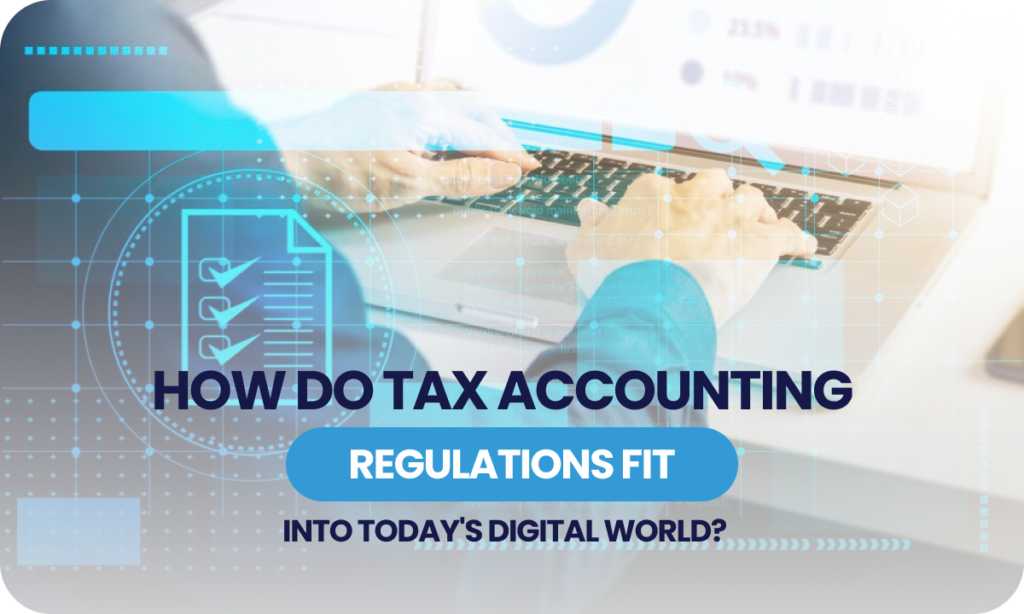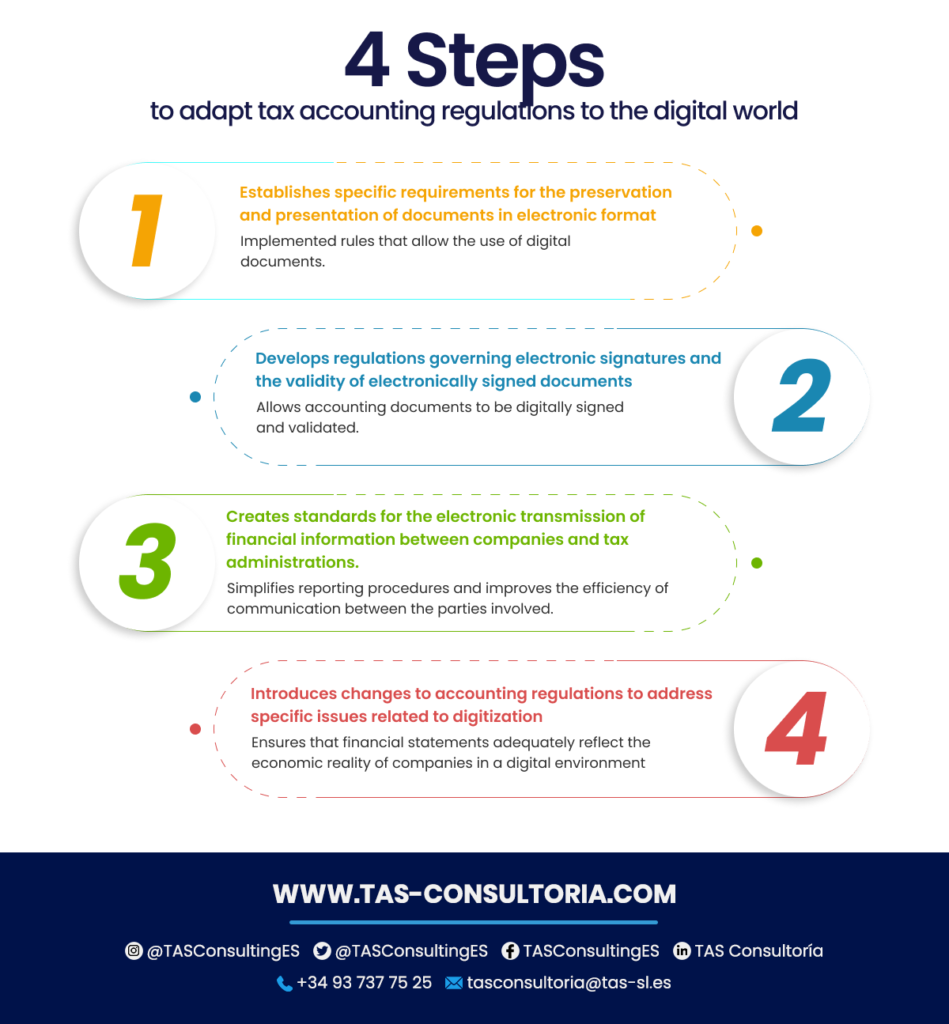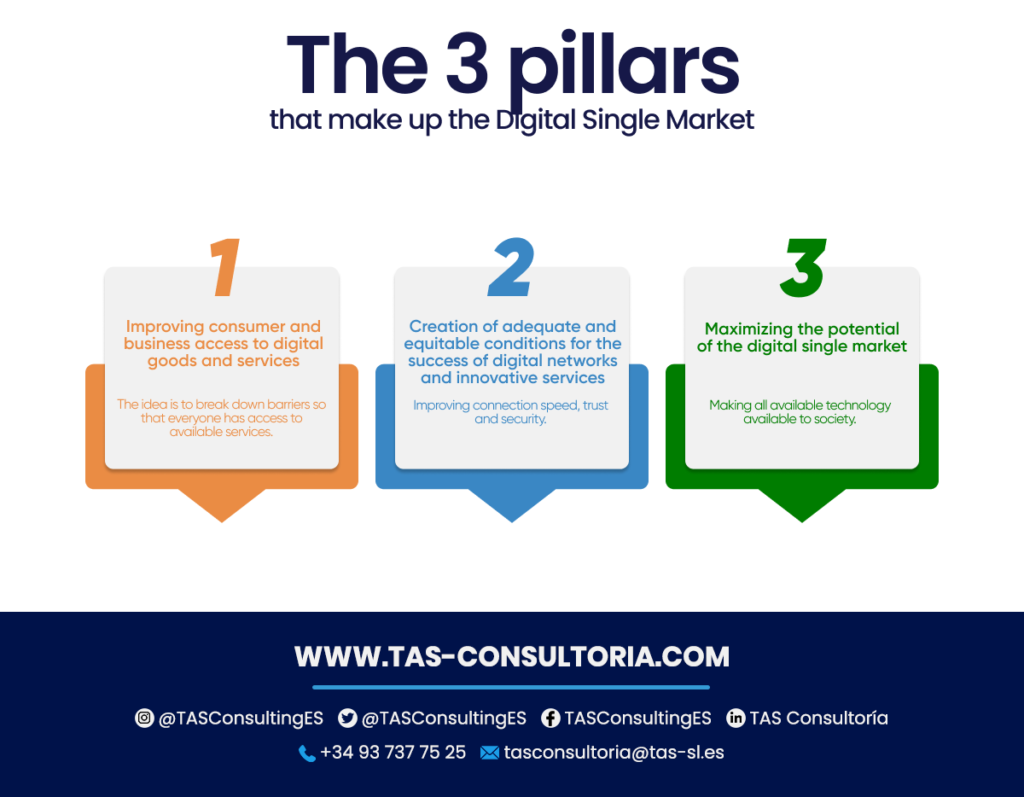
More and more companies and professionals are moving to the digital world to improve their quality of work. As a result, tax accounting regulations have had to adapt to meet user needs. But how do they do it? In this new article we tell you how tax accounting regulations have adapted to the digital world, don’t miss it!
What are the tax accounting regulations?
It is a set of rules and principles that governs the presentation and recording of a company’s financial information. All, of course, for tax purposes.
These rules are established by the tax authorities of each country, with the purpose of ensuring the correct determination and payment of taxes. Another important aspect is that these rules regulate the recognition of tax-deductible income and expenses.
This means that companies must correctly identify the items that can be considered as expenses for tax purposes. These, therefore, must be deductible for income tax purposes.
In summary, tax accounting regulations are fundamental for the recording and presentation of financial information of companies. Its compliance guarantees the transparency, comparability and reliability of financial statements. It also facilitates financial management and compliance with tax obligations.
You may also be interested in: How to become a beneficiary of the Digital Kit Program?
What is the importance of tax regulations?
The importance of tax accounting regulations lies in the fact that they ensure the transparency and uniformity of your company’s financial information. This facilitates the comparability and analysis of financial statements by external users.
This regulation establishes the criteria and methods for the evaluation of assets, liabilities, income and expenses. All with the purpose of being used for tax purposes. This implies that companies must keep adequate records and controls that meet these criteria. This in turn contributes to a more orderly and accurate financial management.
Likewise, it establishes the requirements and procedures for the filing of tax returns and payments. Obliging them to comply with their tax obligations and avoid penalties or legal contingencies.
How have tax accounting regulations been adapted to the digital world?
In recent years, digitalization has significantly transformed the accounting department. This has resulted in major adaptations in tax accounting regulations.
Each adaptation reflects technological changes and the need to ensure the correct presentation of financial information. All within an appropriate digital environment. That said, here are the 4 steps of adaptation that tax accounting regulations have had to go through:

You may also be interested in: Cryptocurrency declaration in Spain
Why is it necessary to generate new taxation?
With the advent of new technologies, companies based in the digital world created strategies that allow them to soften or avoid taxes. But why? This in order to achieve:
- Great financial results.
- Go global and bill around the world.
- To achieve with the structure of the Internet to establish its tax domicile in countries with low taxation.
All of this helps to favor the accountability of the actual collection, as with tax evasion in general. This being so, a global control is required as a result of the emergence and identification of these issues in the digital environment. Thus, the new tax accounting regulations were born.
What is the Digital Single Market?
The European Union’s Digital Single Market is a plan to create a single, digital, free and secure market. In it, citizens will be able to shop online regardless of borders. Companies, for their part, will be able to sell throughout the territory regardless of where they reside.
The Commission adopted the Digital Single Market Strategy on May 6, 2015, consisting of three pillars:

How does the Digital Single Market impact businesses?
The Digital Single Market has a significant impact on companies by providing them with opportunities and challenges in the digital environment.
First, it removes barriers and facilitates e-commerce between EU member states. Allowing companies to expand their operations and reach a wider market. This translates into easier access to new customers and growth opportunities.
It promotes innovation and competition by facilitating the exchange of knowledge and technologies among EU companies. This means that companies can benefit from innovative ideas and solutions from other member countries. As a result, it fosters collaboration and continuous improvement.
It also has an impact through the harmonization of regulations and standards related to the digital sphere. This simplifies administrative processes and reduces regulatory burdens. This in turn allows companies to operate more efficiently and reduce costs.
However, it also presents challenges for companies due to increased competition. This is due to increased accessibility and the entry of new players into the market.
You may also be interested in: The road to digitization of the public sector in Spain
Tax accounting regulations have adapted very well to the digital world and the changes that companies have undergone. Even though you now know this, are you one of those who have not yet taken the step into the digital era? Contact us at tasconsultoria@tas-sl.es and request your personalized advice, based on your company’s needs. What are you waiting for? Don’t postpone your company’s success any longer.




Your email address will not be published .
Required fields are marked with *